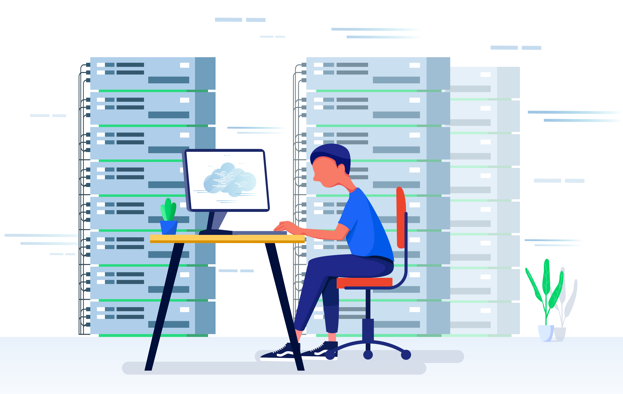Web Hosting For E-Commerce: Ensuring Fast and Secure Transactions
Online storefronts need a physical home on the internet, and hosting provides the space on which your site can be located. For an ecommerce website, the host should have special features for dealing with the demands of an online store, including shopping cart software, SSL certificates to encrypt data sent from users, and a content delivery network for faster page load times. A good ecommerce host should also have 24/7 customer service to assist with any technical problems that might arise.
A quality ecommerce host will be able to handle large numbers of visitors and transactions without any downtime or slowness. This is important, as 57% of consumers will abandon a website that takes more than 3 seconds to load, and many will never return. This is especially true for mobile shoppers, where speed and performance are even more critical.
Ideally, your ecommerce host will provide or support shopping cart software, payment gateways to process credit and debit cards, inventory management tools, a content delivery network for fast page loads, and SEO tools to help you get found in search engine results. These tools are necessary for building your online business and converting customers to buyers, and should be part of every quality eCommerce hosting package.
Ecommerce hosting comes in a variety of shapes and forms, from basic shared to fully managed dedicated servers. Shared hosting is the lowest tier, which shares server space with other websites on the same machine. This can cause issues like slowness and downtime, and isn’t a good choice for ecommerce sites. VPS (virtual private server) hosting is more suitable, with isolated resources that are more likely to be able to handle the demand of an ecommerce website. Dedicated servers are best for high-traffic, high-demand sites that need more control over their hardware and setup.
An excellent ecommerce host will be able to offer automated backups for your site, so that you can recover your site quickly if something goes wrong with it. This can save you time and money compared to having to manually back up your website yourself, or pay for third-party solutions.
Some ecommerce hosting providers will offer a fully hosted ecommerce solution, which means that they’ll take care of all the infrastructure and hosting services for you. These types of solutions are sometimes referred to as SaaS (Software-as-a- Service). They tend to be more expensive, but can save you time and effort by eliminating the need for in-house hardware and support staff. The downside is that they can limit your flexibility when it comes to customization and server setup.
There are a variety of fully hosted ecommerce solutions, Each has its own strengths and weaknesses, but all of them have a simple dashboard, robust SEO features, and top- rated customer support. They’re also well-suited to a wide range of businesses, from
small to mid-size to enterprise.

My Recent Posts
All-in-One Sales Automation Platform
Check out my recent post on all-in-one sales and marketing tools and what I think of it.
Sales Funnels
Check out my recent post on sales funnels and what I think about them. Are they still worth it?

Mary is marriage, living with my husband and her three beautiful children. her background, she is a nurse by Professional. Due to a shift work within nursing career, it’s become so hard for Mary to look after her young kids and maintained her hours at work. So, she decided to start working online as an affiliate Marking and she is going on very well with her business now. that is all about her, I hope that will give you little a bit inside about Mary.
Mary Mark
©Copyright 2024 Increase Shape A List
10-12 Flushcombe Rd Unit #1021
Blacktown, NSW 2148
